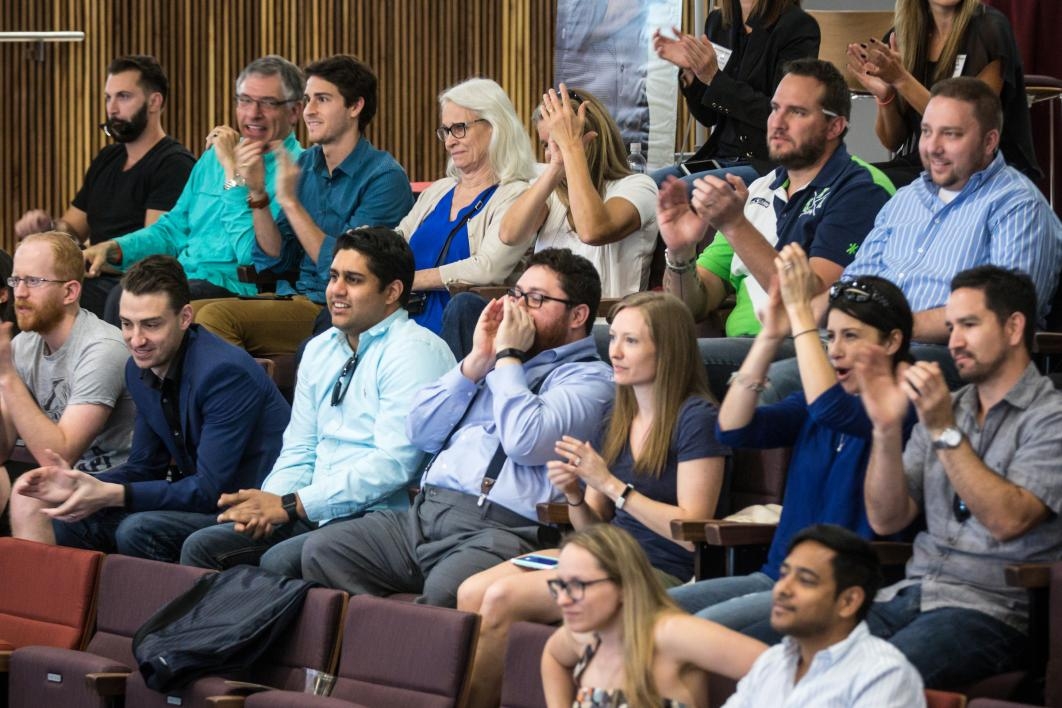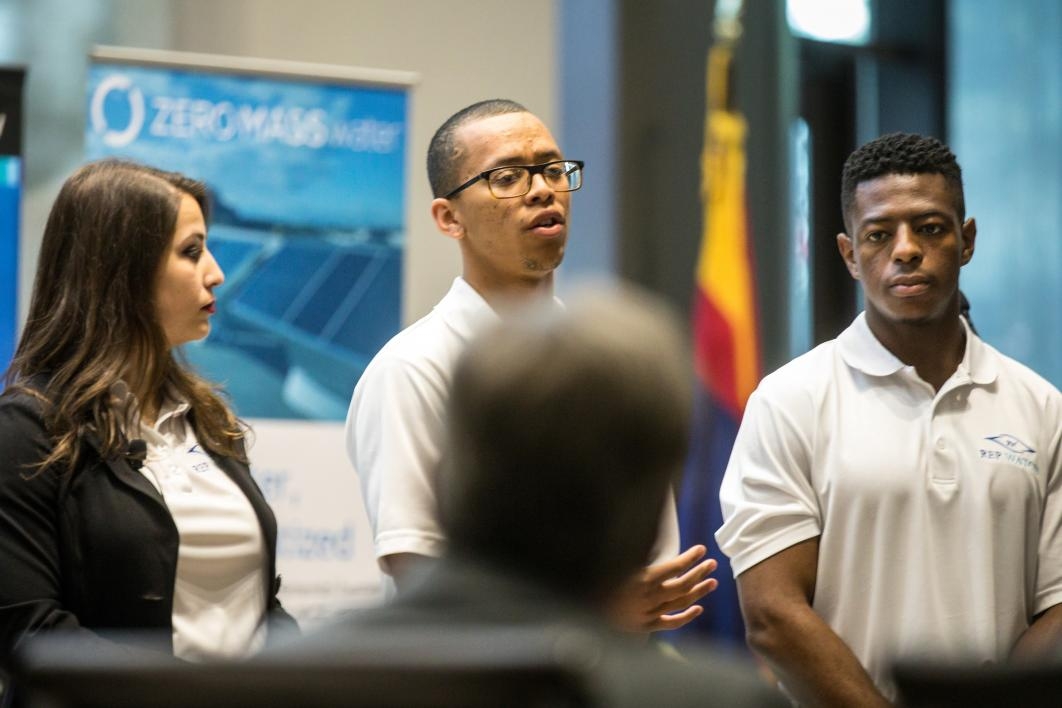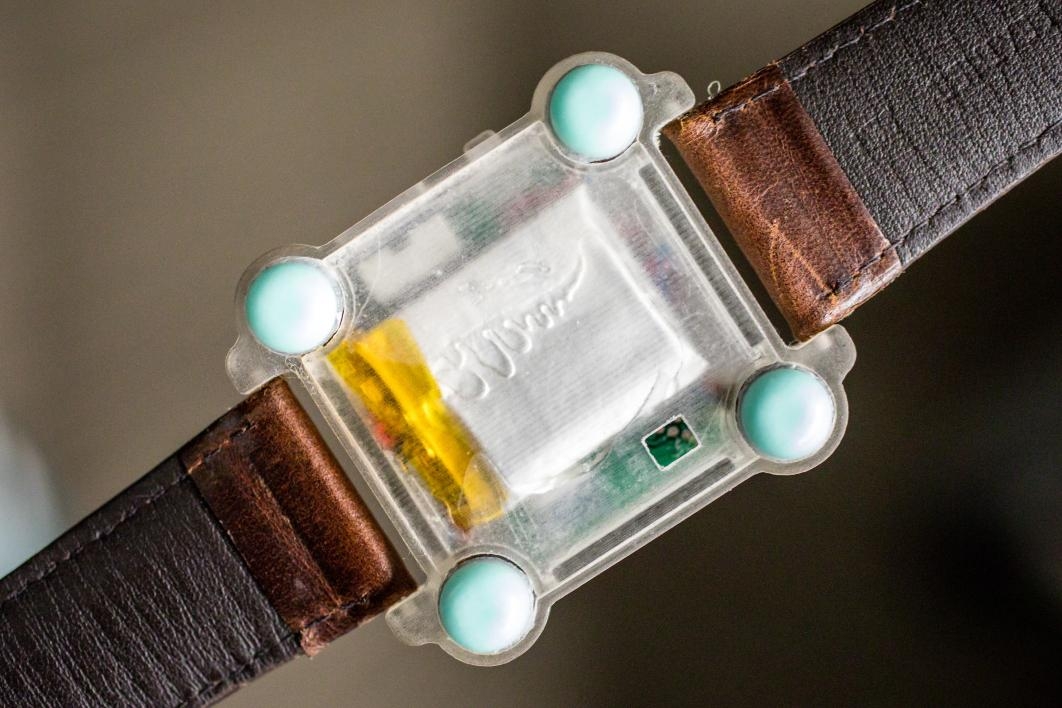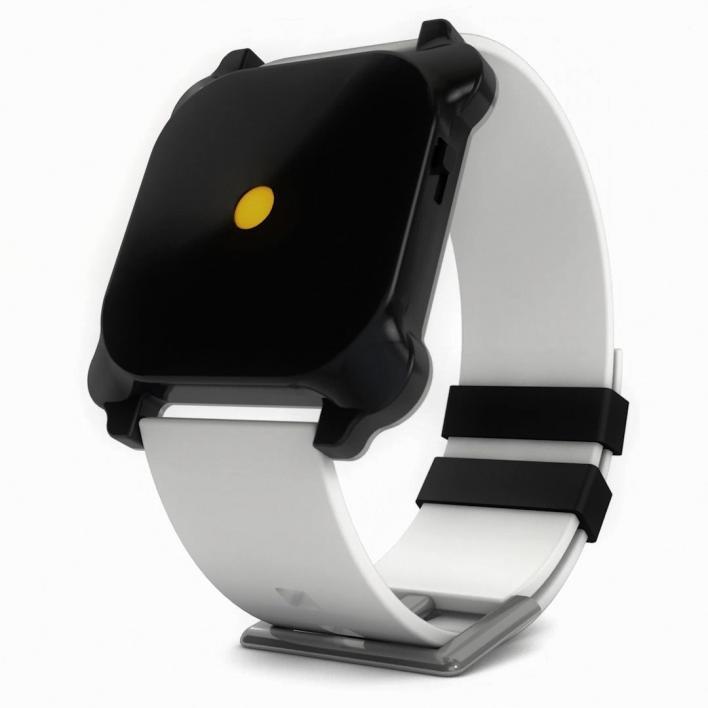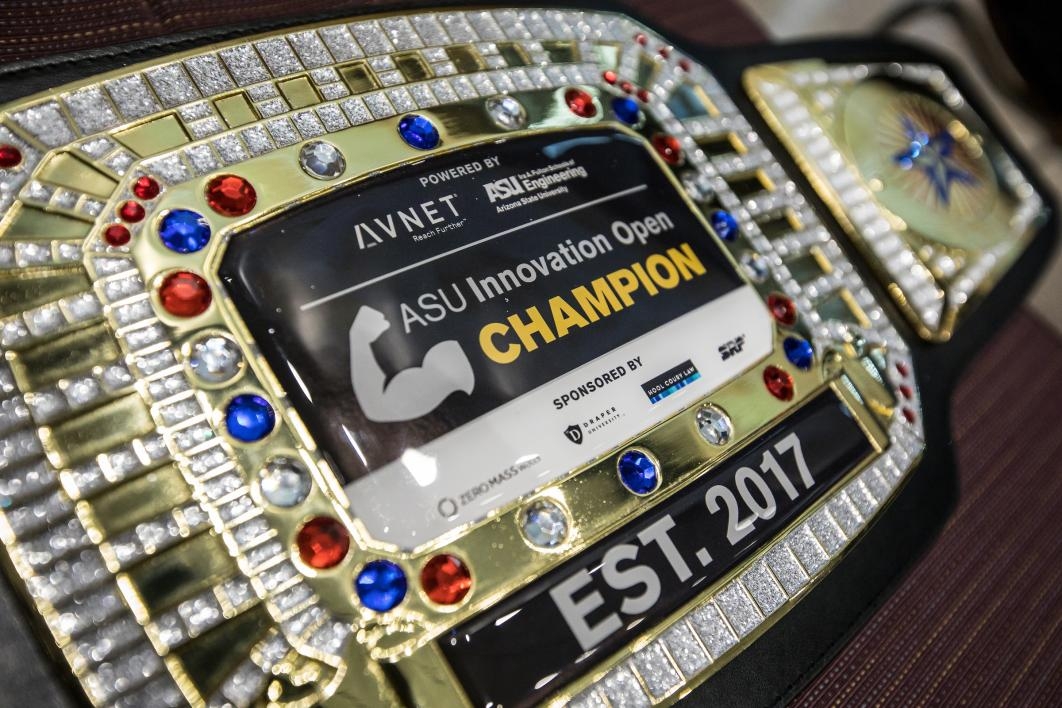Creators of wearable tech for visually impaired win ASU Innovation Open
Three entrepreneurs say they have 230 preorders for Moment device
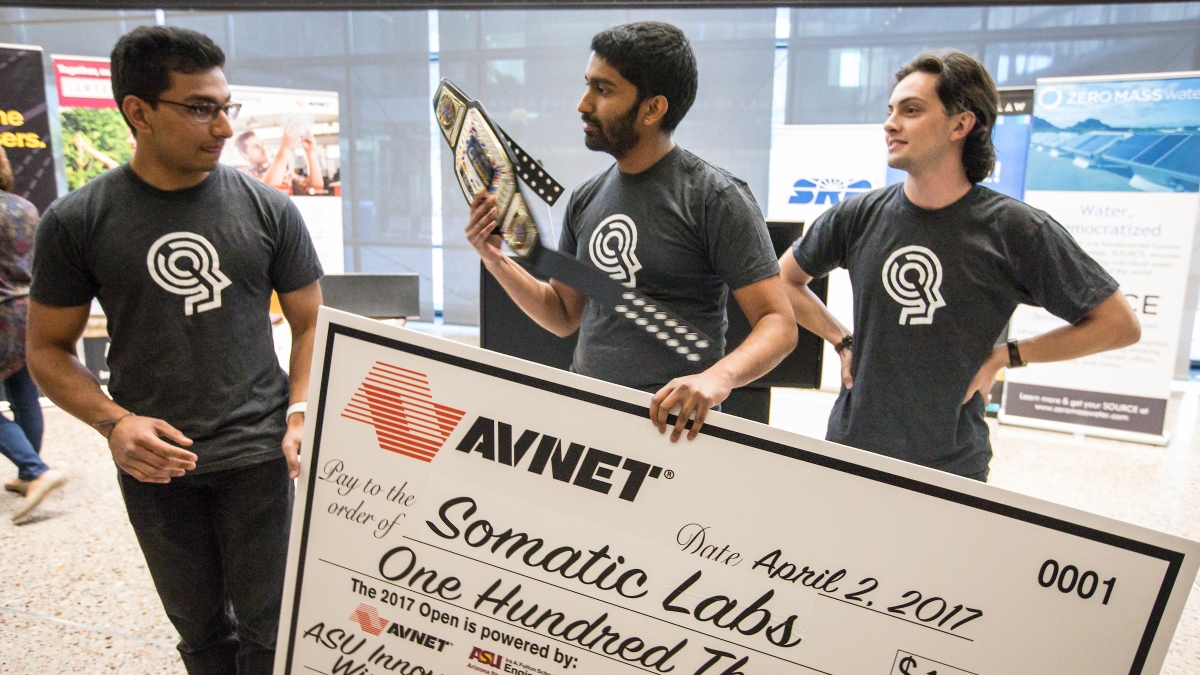
Three young men who met five years ago as Flinn Scholars and launched an entrepreneurial venture won $100,000 on Sunday to fund their project, which makes wearable technology for people with visual impairments.
Shantanu Bala and Ajay Karpur, both graduates of Arizona State University, and Jacob Rockland, a senior at the University of Arizona, created Somatic Labs, which won the first ASU Innovation Open competition this past weekend. The three met during networking events for winners of the Flinn Scholarship, a prestigious, merit-based program for Arizona high school graduates to attend one of the three state universities.
The $100,000 investment will get the team closer to filling orders for Moment, their wristband device that uses “haptic,” or touch, technology to turn information into finely tuned vibrations.
The competition began last year with 33 student-led teams applying from several states and was narrowed to 15 semifinalists in February. The finalists pitched at Sunday’s “Final Four Demo Day” event, held at the Beus Center for Law and Society at ASU’s Downtown Phoenix campus. The contest was sponsored by Avnet, which donated the prize money, and the Ira A. Fulton Schools of Engineering at ASU. Additional sponsors were Draper University, Zero Mass Water, Hool Coury Law and SRP.
The other ASU team that was a finalist, Swift Coat, won the $10,000 SRP Innovation Award. Swift Coat, a delivery system for nanoparticle coatings, similar to an aerosol spray nozzle, was launched by Zak Holman, an assistant professor in the School of Electrical, Computing and Energy Engineering, and Peter Firth, a PhD student at ASU. They’ve already drawn $3 million in federal funding and also won the $45,000 New Venture Challenge at ASU last year.
The other two finalists were RepWatch, made of three students from California Lutheran University, and Nunami Labs, created by three University of Arizona students. RepWatch created a platform and wearable device to enhance physical therapy for patients. Nunami Labs is developing 360-degree sensors for driverless cars.
All four teams won $5,000 for advancing to the final round.
Bala, a 2014 graduate who double majored in psychology and computer science, and Karpur, a 2016 grad in electrical engineering, worked at ASU’s Center for Cognitive Ubiquitous Computing on projects to help people with disabilities. Somatic Labs came directly out of that experience.
“A lot of what we were doing day to day was working with people who were blind or visually impaired, and a lot of them were ASU students,” Karpur said. “The process involved a lot of direct interaction with the people who would be using this technology.”
During the pitch, Bala said the team already has 230 preorders for the $199 Moment device and one patent. The $100,000 investment will speed the process of filling the orders, which Somatic Labs hopes to do by June.
“We’re starting with people who have visual impairments because they needed this technology yesterday,” said Bala, who won a $100,000 Thiel Fellowship to research haptics.
As the orders came in, the three entrepreneurs talked to customers with visual impairments, and one man described how, when he wanted to know who was calling him, he had to have an audio notification.
“Even as simple as checking what time it is involves cranking up the volume and having the phone yell out the time,” Bala said.
“If someone is calling, you’ll hear something like, ‘Your mom is calling, your mom is calling,’ in the middle of a meeting or in class.”
Moment communicates tactilely. For example a visually impaired person who is walking down the street and approaching an intersection will feel a sensation on her wrist. Different callers would have unique sensation patterns on the user’s wrist.
Users download an app on their smartphones to sync with Moment. The device works with applications such as Facebook and Twitter, but it’s built so that anyone can make an app to interface with it for free. It includes an accelerometer, gyroscope and magnetometer to calibrate and provide interactive feedback.
Bala said the team is constantly updating its prototype — even as often as every few days.
“We’ve fabricated our own plastics, made our own circuit boards, wrote all our own software over the last year. We do all our own marketing and design.
“We built this company from the ground up.”
Top photo: Designers of wearable technology for the visually impaired, Somatic Labs team members — Ajay Karpur (left) and Shantanu Bala of ASU, and Jacob Rockland of UofA — won the top prize at the ASU Innovation Open on Sunday at the Beus Center for Law and Society in downtown Phoenix. They took a moment to collect themselves after picking up the $100,000 award and championship belt.
More Science and technology
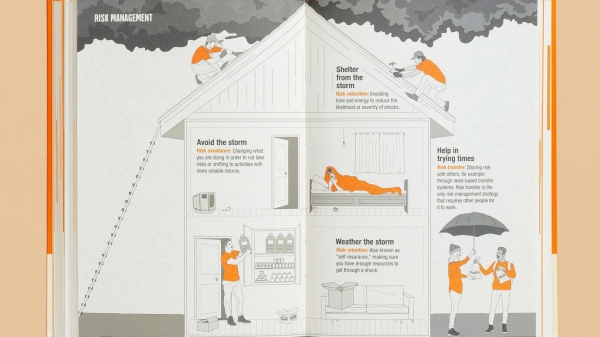
ASU author puts the fun in preparing for the apocalypse
The idea of an apocalypse was once only the stuff of science fiction — like in “Dawn of the Dead” or “I Am Legend.” However these days, amid escalating global conflicts and the prospect of a nuclear…
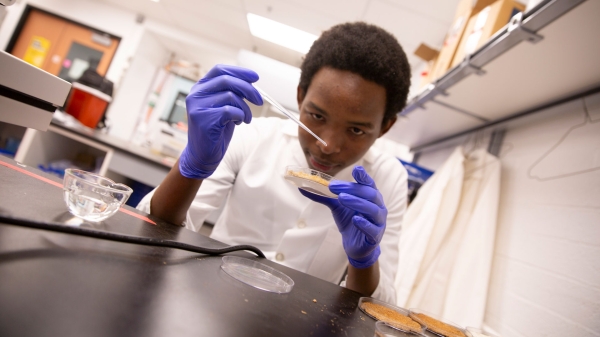
Meet student researchers solving real-world challenges
Developing sustainable solar energy solutions, deploying fungi to support soils affected by wildfire, making space education more accessible and using machine learning for semiconductor material…
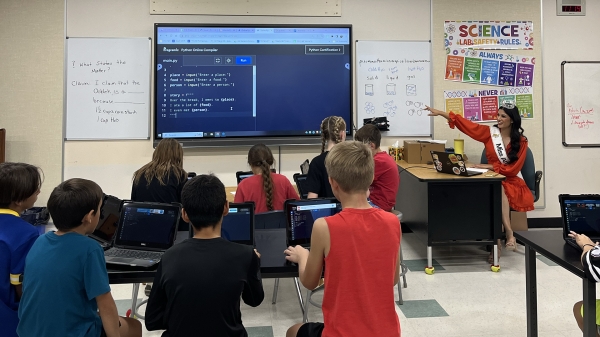
Miss Arizona, computer science major wants to inspire children to combine code and creativity
Editor’s note: This story is part of a series of profiles of notable spring 2024 graduates. “It’s bittersweet.” That’s how Tiffany Ticlo describes reaching this milestone. In May, she will graduate…
